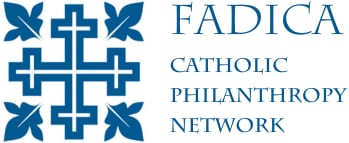A national conference of Catholic school experts and philanthropists held in association with FADICA’s 32nd annual meeting finds that more innovative school leadership, transparent and accountable school operations, and hands-on help from the higher educational institutions hold the key to the future of Catholic schools.
“At present there is an acute shortage of people well prepared for school leadership”, said Dr. Karen Ristau, President of the National Catholic Education Association, one of a dozen national experts addressing FADICA’s conference: Catholic Schools, A New Chapter in An Old Story.
Dr. Ristau addressed an audience of 100 private foundation representatives gathered January 24-25, to discuss Catholic school leadership, finances, school performance, and innovation. “Donors today want to see their money working”, said Dr. Mary McDonald, School Superintendant for the Diocese of Memphis.
“Accountability is the prerequisite to turning schools around,” she added. Loyola University’s Dr. Lorraine Ozar, Director of the Center for Catholic School Effectiveness, remarked that Catholic schools were at a watershed moment yet, “it is a rare diocese that is transparent about their school data”.
Professor Dr. Mary Walsh of Boston College agreed. “Parents have an impossible job in comparing Catholic schools to other schools,” she noted. Diocesan school offices, she told the audience “generally do not release school data and sometimes take the position that comparisons are odious.”
The FADICA conference comes at a time when donor involvement in Catholic schools is increasing nationally. Nonetheless, schools still face declining enrollments and sharply higher operating costs. Nearly 500 Catholic schools have been closed across the county over the past five years. Conferees at the Naples conference urged foundations and donors to get more deeply involved in the schools plight and consider using influence in positive ways to broaden participation in the educational mission of the church.
Fr. Timothy Scully, CSC, of Notre Dame reported to conferees that only 26 of the 235 Catholic colleges and universities had school leadership programs. “The biggest challenge we face in Catholic education is preparing leaders for our future,” he said. “We can do much better.”
Among those addressing the gathering was former Unicom and Commonwealth Edison Chairman, James O’Connor of the Big Shoulders Fund of Chicago. Mr. O’Connor’s group has raised a $40 million endowment for 93 schools in the Archdiocese of Chicago and manages to provide hands-on help to individual schools to maintain quality and viability.
“We’ve put 22 marketing directors in these schools and we have 6 people in graduate school getting scholarship assistance from us provided they render at least three years of service to the schools upon completion of their degree”, Mr. O’Connor noted. “Hands-on help makes a difference,” he added.
While gathered at the Florida conference, the members of FADICA awarded Fr. John P. Foley, SJ, founder of Cristo Rey High School, the Distinguished Catholic Leadership Award, for his role in establishing a network of some 19 such schools throughout the country providing a premier quality high school education to urban students from low income families.


